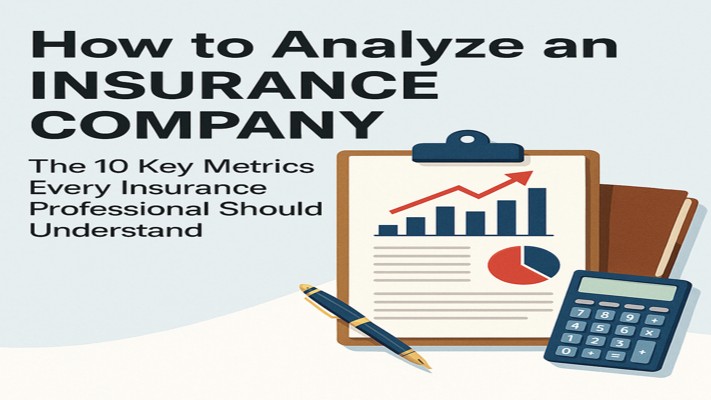In the realm of personal and business finance, few decisions carry as much weight as selecting the right insurance coverage. It’s a foundational element of risk management, offering a crucial safety net against unforeseen events that could otherwise lead to significant financial distress. Yet, a common pitfall many individuals and businesses encounter is the tendency to rush into an insurance policy without adequately exploring their options. The allure of a quick quote or the convenience of sticking with a familiar provider can often overshadow the critical importance of a thorough shopping process. Understanding why it’s essential to meticulously shop for insurance before committing to a policy is not just about saving money; it’s about securing optimal protection, ensuring value, and aligning coverage precisely with your unique needs.
At its core, shopping for insurance is an exercise in due diligence. The insurance market is a dynamic and competitive landscape, teeming with various providers, policy structures, and pricing models. Each insurer assesses risk differently, employs distinct underwriting guidelines, and offers a unique suite of coverage enhancements and discounts. Without comparing multiple offers, you are essentially making a purchase in the dark, potentially leaving money on the table or, far more critically, exposing yourself to significant gaps in coverage. Consider, for example, two auto insurance companies. One might offer a seemingly lower premium but come with a higher deductible or more restrictive terms regarding rental car reimbursement after an accident. Another might present a slightly higher initial premium but include roadside assistance, accident forgiveness, or superior claims service, which could prove invaluable in a moment of crisis. A truly informed decision hinges on having these different perspectives laid out for comparison.
Moreover, personal and business circumstances are rarely static, and what was once adequate coverage may no longer serve your evolving needs. A young professional buying their first car will have different insurance requirements than a seasoned driver with a family. Similarly, a burgeoning startup will need a different liability and property insurance profile than an established corporation. Life events such as getting married, purchasing a home, starting a family, or launching a new venture fundamentally alter your risk exposure and, consequently, your insurance necessities. If you merely renew your existing policy without re-evaluating the market, you might miss out on policies better suited to your current situation, potentially overpaying for coverage you no longer need or, worse, being underinsured for new risks you now face. For instance, expanding a home-based business might require a separate commercial liability policy that your standard homeowners insurance does not cover.
The financial implications of not shopping around are substantial. Premiums for identical or highly similar coverage can vary dramatically between insurers. This disparity can stem from a variety of factors, including the insurer’s overhead costs, their risk appetite for certain demographics or industries, their claims history, and even their marketing strategies. Staying with the same insurer out of inertia often means missing out on competitive pricing. Many consumers mistakenly believe that loyalty is always rewarded with the best rates, but this is frequently not the case. New customer incentives and the competitive drive of the market often mean that better deals are available to those willing to switch providers. Imagine paying an extra fifty dollars a month for your homeowners insurance simply because you didn’t spend an hour comparing quotes; over a decade, that amounts to an unnecessary $6,000 expenditure. This accumulated waste could easily fund a significant home improvement or contribute substantially to a retirement fund.
Beyond price, the quality of coverage and the terms of the policy are paramount. A cheaper policy might contain exclusions that leave you vulnerable. For instance, a basic business liability policy might not cover professional negligence claims, leaving a consulting firm exposed unless they specifically opt for professional liability (E&O) insurance. Similarly, some home insurance policies might have limited coverage for specific natural disasters prevalent in your area, like floods or earthquakes, requiring separate policies or endorsements. By thoroughly shopping, you gain the opportunity to scrutinize these fine print details, ask pertinent questions, and ensure that the policy you select genuinely addresses all foreseeable risks. This proactive approach helps prevent the heartbreaking discovery of an uncovered loss when you need your insurance the most.
Furthermore, shopping for insurance allows you to evaluate the customer service and claims handling reputation of various insurers. An insurance policy is only as good as the company backing it. In the unfortunate event of a claim, you want an insurer that is responsive, fair, and efficient. Researching customer reviews, industry ratings, and claims satisfaction surveys can provide invaluable insights into an insurer’s reliability. A company with a stellar reputation for prompt and compassionate claims service, even if their premium is slightly higher, might offer superior long-term value and peace of mind compared to a cheaper alternative known for bureaucratic hurdles and delays.
In essence, shopping for insurance before signing a policy is not just a recommendation; it is a fundamental pillar of sound financial management. It empowers you to make an informed decision based on a comprehensive understanding of the market, your personal circumstances, and the specific terms of the coverage. It’s an investment of time that yields significant returns in financial savings and, more importantly, in the invaluable security that comes from knowing you have the right protection in place when life’s inevitable challenges arise. By embracing this diligent approach, you transform the potentially overwhelming task of insurance selection into a strategic decision that safeguards your assets, your well-being, and your future.



